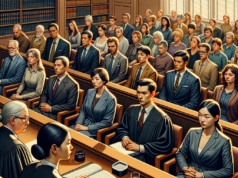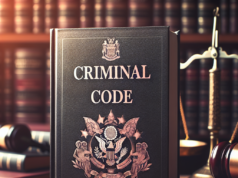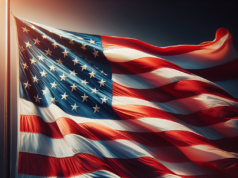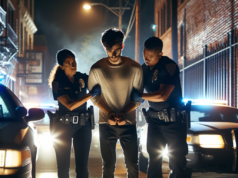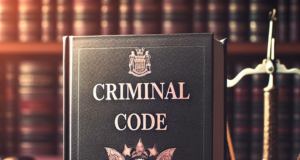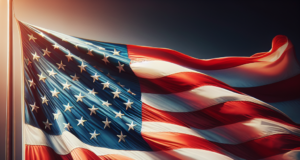
President Obama has recently signed the reauthorization of the Violence Against Women Act (VAWA) into law. This new legislation is much stronger than the older 1994 version because it creates and expands federal programs that assist victims of sexual and domestic violence. In addition to re-establishing provisions of the older law pertaining to intimate partner violence, it provides newly established legal protections for LGBT victims of domestic violence.
(More on News at LAWS.com, contact Adam for interviews “adama@laws.com”)
Since its inception in 1994, the Violence Against Women Act has provided a holistic approach to tackling the issue of domestic violence. However, it was lacking provisions that safeguarded the rights of members of the LGBT community. This meant that before the passage of the new version of VAWA, many LGBT victims of domestic violence were being denied essential services. More than 55 percent of LGBT victims who tried to obtain protection orders were denied them, and what is more shocking is that 45 percent of LGBT victims of domestic violence were turned away by domestic violence shelters when they sought help there.
Members of the LGBT community need the services provided for by VAWA as much as the rest of the population, as they experience the same rate of domestic violence, 25 – 33 percent, as heterosexuals victims. LGBT victims of domestic violence were already receiving services under VAWA, the new provisions simply make clear that LGBT programs are eligible for funding and that state administrators cannot deny a LGBT victim of domestic violence access to services.
The Human Rights Campaign (HRC) is the nation’s largest civil rights organization working to achieve equality for gay, lesbian, bisexual and transgender Americans. Established in 1980, the HRC advocates on behalf of LGBT Americans, invests to elect fair-minded individuals, educates the public about LGBT issues and mobilizes grassroots actions. The HRC works to prevent hate crimes, advocates for marriage equality, and lobbies for a federal Employment Non-Discrimination Act (ENDA).
The following is an interview with Ty Cobb, Senior Legislative Counsel of the HRC, on his thoughts and feelings about the recent reauthorization of VAWA, and the work of his organization in the realm of domestic violence.
In your opinion, what does the recent passage of the Violence Against Women Act (VAWA) with the added LGBT provisions signify for the gay rights movement?
Times are changing. This reauthorization of VAWA contained the first federal LGBT-inclusive non-discrimination clause in our nation's history. The clause will protect gay and transgender victims of domestic violence from discrimination by service providers receiving federal funds. It passed with a strong bipartisan vote in the Senate and was approved by the Republican-controlled House of Representatives. This goes to show that the LGBT community can be included in broad pieces of federal legislation and partisan politics shouldn't be a reason for keeping the community out.
Do you believe the new version of VAWA goes far enough to protect LGBT people against domestic violence?
We can always do more. LGBT victims of domestic violence may be unwilling or scared to discuss their abusive relationships because they fear “being outed” to their employer. This fear is particularly acute for victims living in states without civil rights protections for LGBT people. It is legal for an employer to discriminate against — and even fire — an employee for being gay in 29 states, and for being transgender in 34 states. To eliminate this problem, Congress must pass the Employment Non-Discrimination Act, which would provide basic federal protections against workplace discrimination on the basis of sexual orientation or gender identity
Do you believe there are enough services available to cater to the specific needs of LGBT victims of domestic violence?
While drafting the language for the recently enacted VAWA reauthorization, two thousand advocates responded to surveys and national conference calls to identify the most pressing issues facing victims of domestic violence. Local programs, state and federal grant administrators, national resource centers, and others weighed in on the needs of victims. As a result of this deep dive into the gaps in the then-current VAWA, it became clear that LGBT victims of domestic violence were not receiving the services they needed – even though they experience domestic violence at roughly the same rate as all other victims.
What has the HRC been able to achieve in terms of advancing the cause of LGBT domestic violence victims?
Working with our coalitions partners, including the National Coalition of Anti-Violence Programs and the L.A. Gay & Lesbian Center, we have been able to ensure that service providers assisting LGBT domestic violence victims have access to critical federal grant programs. The newly enacted law explicitly allows such service providers access to the largest federal domestic violence grant program, the “STOP Grant Program." In addition, the new law establishes a grant program to assist service providers with doing outreach to the LGBT community and providing services to LGBT victims of domestic violence.
As a society, do you believe we have come a long way since the initial passage of VAWA in 1994?
We have come very far, as passage of this bill shows, but we have a long way to go. Earlier this year, the Centers for Disease Control and Prevention released the first report to examine national data on intimate partner violence in the lesbian, gay and bisexual community. Further research is needed in order to fully understand how intimate partner violence impacts the entire LGBT community. This information is critical to informing prevention programs and policies aimed at reducing such victimization.
For more information please visit the Human Rights Campaign website. To learn more about Domestic Violence please click on the link.





